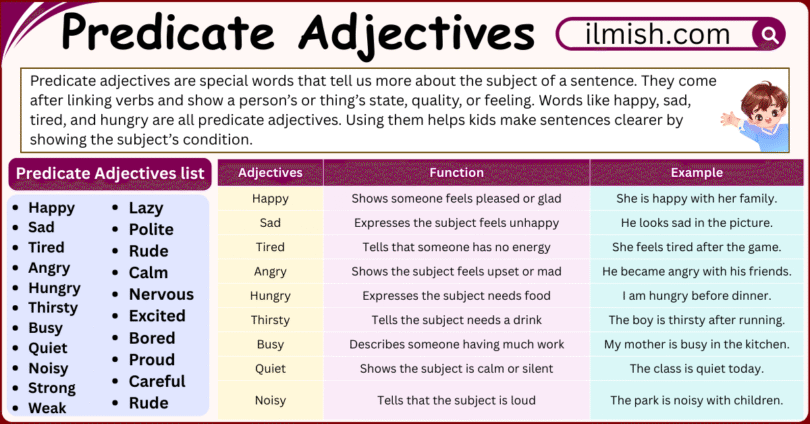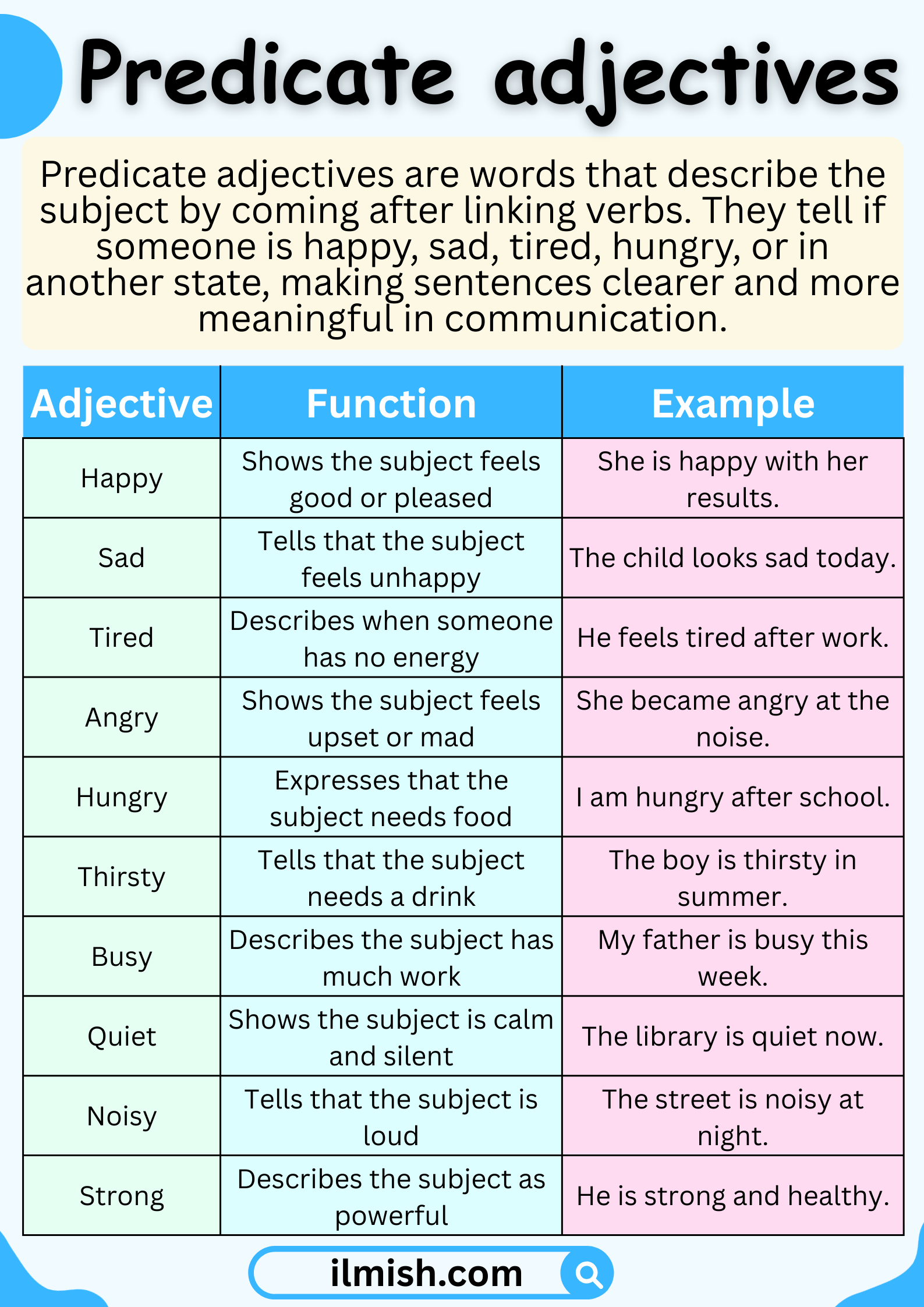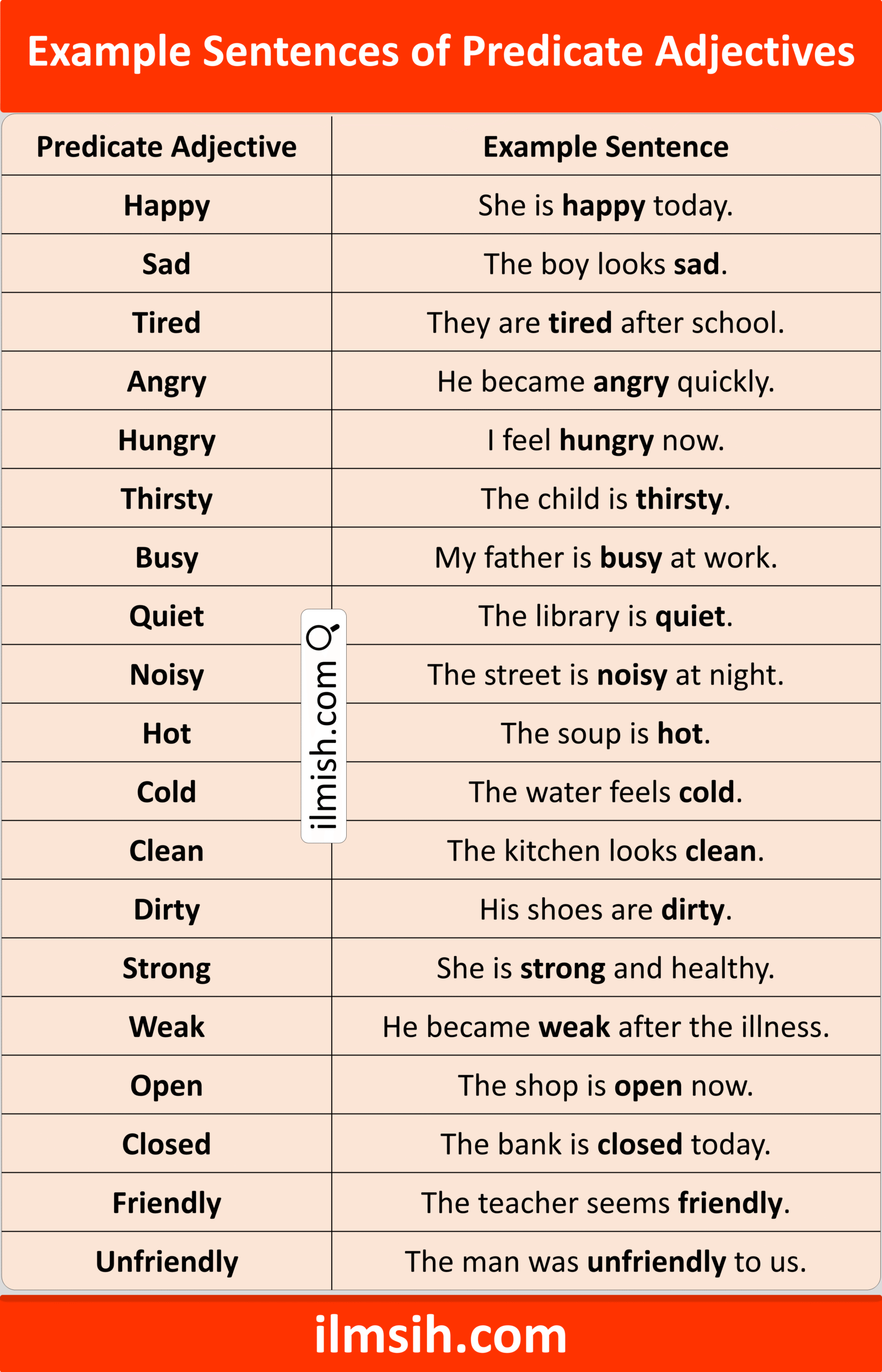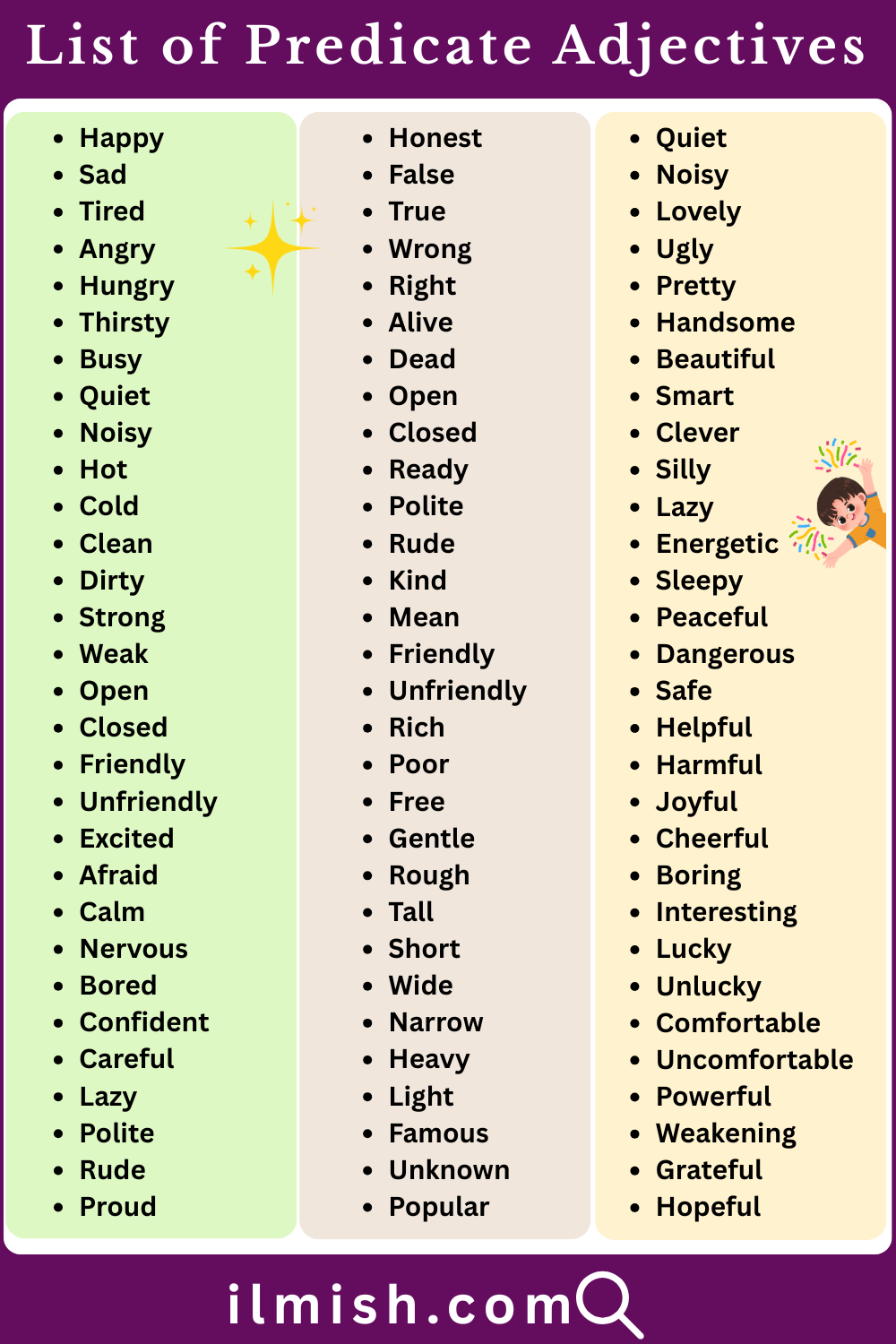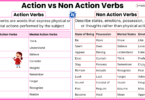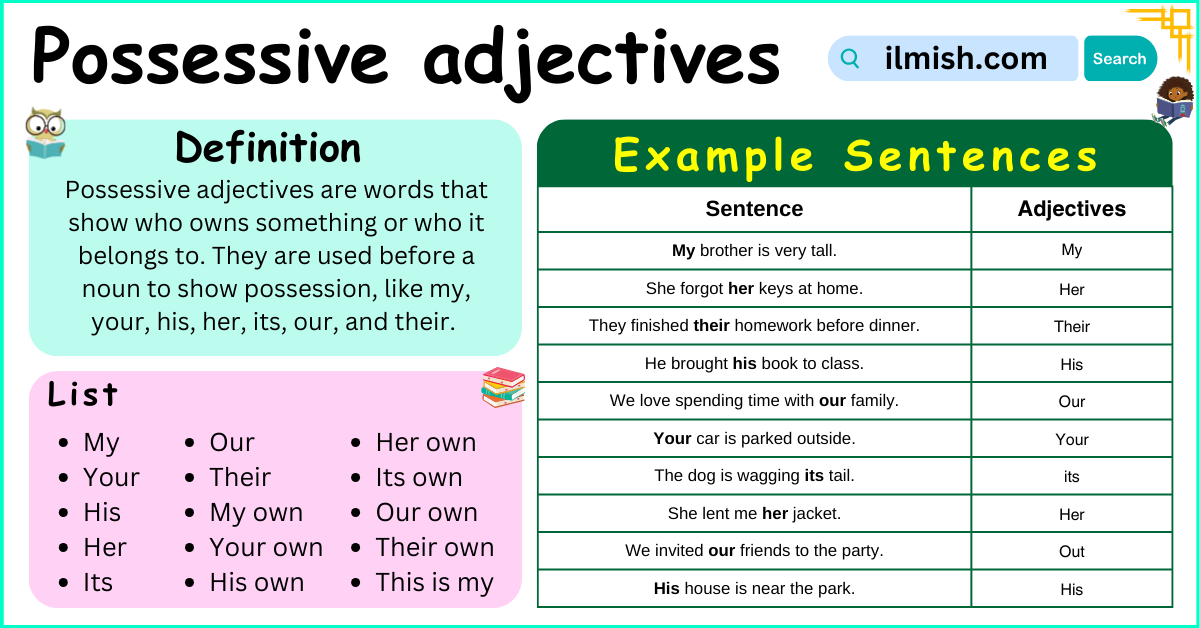When we describe someone or something in a sentence, we often use adjectives. One special type of adjective is called a predicate adjective. These adjectives come after a linking verb, such as is, are, was, were, or seem, and they tell us more about the subject of the sentence. Predicate adjectives make our sentences clear, simple, and meaningful by showing a quality, condition, or state of the subject. Understanding predicate adjectives is very helpful for students and English learners because they are used in daily conversations, stories, and descriptions.
Definition of Predicate adjectives
What are Predicate Adjectives?
A predicate adjective is an adjective that comes after a linking verb and describes the subject of the sentence. It tells us more about the subject’s quality, state, or condition.
For example:
- The sky is blue.
- She looks happy.
Here, blue and happy are predicate adjectives because they describe the subjects sky and she after the linking verbs is and looks.
How Predicate Adjectives Work in a Sentence
Predicate adjectives always follow linking verbs (not action verbs). The most common linking verbs are:
- be (am, is, are, was, were)
- seem
- look
- feel
- become
- appear
- sound
- grow
- remain
Example sentences:
- The food smells delicious.
- He became angry.
- They are tired.
Difference Between Predicate Adjectives and Attributive Adjectives
To avoid confusion, let’s compare predicate adjectives with attributive adjectives.
| Attributive Adjectives | Predicate Adjectives |
|---|---|
| Come before nouns | Come after linking verbs |
| Example: She is a smart girl. | Example: The girl is smart. |
| Modify nouns directly | Modify subjects through verbs |
Common Examples of Predicate Adjectives
Here are some frequently used predicate adjectives in English:
happy, sad, tired, angry, hungry, smart, tall, short, clean, dirty, old, young, strong, weak, noisy, quiet, open, closed, friendly, unfriendly
Example sentences:
- The children are happy.
- This room looks clean.
- He feels tired after work.
- The shop is closed now.
Rules for Using Predicate Adjectives
When learning predicate adjectives, keep these rules in mind:
1. They always follow linking verbs
❌ Wrong: She happy is.
✅ Correct: She is happy.
2. They describe the subject, not the object
The book is interesting. (Subject = book, predicate adjective = interesting)
I found the book interesting. (Here, interesting is an object complement, not a predicate adjective.)
3. More than one adjective can be used
The weather is cold and windy.
She feels happy and excited.
Predicate Adjectives in Different Tenses
Predicate adjectives can be used in any tense with the correct form of the linking verb.
| Tense | Example |
|---|---|
| Present | The cake is sweet. |
| Past | The cake was sweet. |
| Future | The cake will be sweet. |
| Present Continuous | The kids are being noisy. |
| Past Continuous | The kids were being noisy. |
| Present Perfect | He has been busy. |
Advanced Usage of Predicate Adjectives
Predicate adjectives are also used in more advanced structures:
With degree words (comparatives and superlatives)
- She is happier today.
- This test is easier than the last one.
- That mountain is the tallest.
With intensifiers
- The soup is very hot.
- He seems extremely tired.
With negative forms
- The answer is not correct.
- This option is not suitable.
Predicate Adjectives in Exams
For ESL students, predicate adjectives are tested in:
- Sentence correction questions
- Fill in the blanks
- Error spotting
- Writing tasks
Example (Exam-style question):
Fill in the blank with the correct predicate adjective:
The road looks ______. (smooth / smoothly)
✅ Correct Answer: smooth (because it describes the subject, not the verb).
Example Sentences of Predicate Adjectives in English
| Predicate Adjective | Example Sentence |
|---|---|
| Happy | She is happy today. |
| Sad | The boy looks sad. |
| Tired | They are tired after school. |
| Angry | He became angry quickly. |
| Hungry | I feel hungry now. |
| Thirsty | The child is thirsty. |
| Busy | My father is busy at work. |
| Quiet | The library is quiet. |
| Noisy | The street is noisy at night. |
| Hot | The soup is hot. |
| Cold | The water feels cold. |
| Clean | The kitchen looks clean. |
| Dirty | His shoes are dirty. |
| Strong | She is strong and healthy. |
| Weak | He became weak after the illness. |
| Open | The shop is open now. |
| Closed | The bank is closed today. |
| Friendly | The teacher seems friendly. |
| Unfriendly | The man was unfriendly to us. |
| Excited | The children are excited for the trip. |
List of Predicate Adjectives in English
- Happy
- Sad
- Tired
- Angry
- Hungry
- Thirsty
- Busy
- Quiet
- Noisy
- Hot
- Cold
- Clean
- Dirty
- Strong
- Weak
- Open
- Closed
- Friendly
- Unfriendly
- Excited
- Afraid
- Calm
- Nervous
- Bored
- Confident
- Careful
- Lazy
- Polite
- Rude
- Proud
Learn more helpful articles

